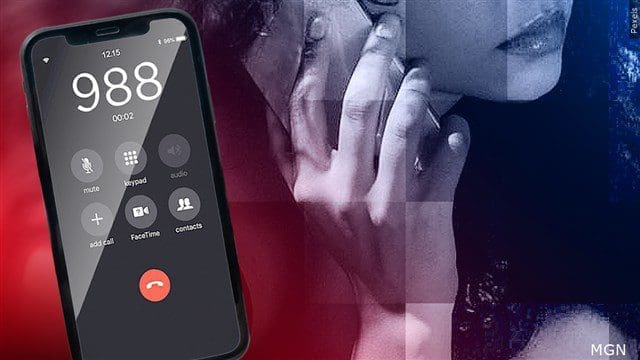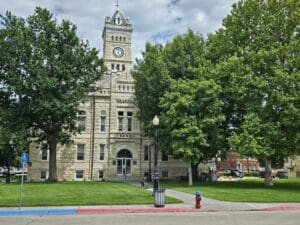Topeka, KS– Governor Laura Kelly today announced that since its launch in July 2022, the 9-8-8 Suicide and Crisis Lifeline has handled a nearly 27% increase in call volume compared to the six months before its launch. Based on national projections, Kansas is estimated to reach 120,000 Kansans in the hotline’s first full year of operation.
In June 2022, Governor Kelly signed Senate Bill 19, bipartisan legislation that created the state’s three-digit dialing code for the National Suicide Prevention Lifeline (NSPL). The hotline is backed by federal funding, with the idea that – like 9-1-1 – 9-8-8 is easier to remember in a crisis.
“The successes we are seeing with the implementation of 9-8-8 are a reflection that when Kansas leaders come together to invest in mental health, more Kansans can access essential care,” Governor Laura Kelly said. “I continue to encourage Kansans to tell their families, friends, and neighbors that this resource is here for them whenever they need it.”
Now, calls, texts, or chats to 9-8-8 involving thoughts of suicide, mental health or substance use crises, or other kinds of emotional distress are available 24 hours a day, seven days a week. Callers can also receive the immediate support of mobile crisis teams in cases of extreme risk, referral to local mental health services, and resources for follow-up care.
“One of the key things we’re trying to do through 9-8-8 is increase access to mental health services and resources,” Kansas Department for Aging and Disability Services (KDADS) Secretary Laura Howard said. “Youth experiencing mental health crises are acclimated to communicating with peers and adults through text or chat rather than by phone, so these formats go a long way to help meet these young people where they are, using a method they feel comfortable with.”
According to data from Vibrant, the current administrator of the 9-8-8 Suicide and Crisis Lifeline, 9-8-8 centers in Kansas have maintained an in-state call-answer rate of 85% to 91% month-over-month amid increased call volume. Other states have struggled with call volume, causing higher rates of sending calls to an out-of-state center. Just a few years ago, Kansas answered about 60% of NSPL calls in-state, with many calls rolling over to national backup centers.
Kansas has also fared better than its regional peers on its “abandon” rate, or the number of received calls that disconnect before engagement with an in-state counselor. That rate has consistently remained below 10%.
In Kansas, 9-8-8 contact centers are independently operated. They receive additional state funding and oversight from KDADS and the 9-8-8 Coordinating Council appointed last fall by Governor Kelly.
Kansas Suicide Prevention HQ (KSPHQ) reports that 9-8-8 funding has allowed them to hire positions for both chat/text and calls, increasing the capacity to receive calls from Kansans and plan for expanded chat access.
“Overall, we’ve been able to hire more support in the call center to help take calls, manage resources and work on mobile response across the state,” Sarah Robertson, Communications and Development at KSPHQ, said.
The Kelly Administration has also worked to ensure every Kansan knows that this new resource is available.
KDADS commissioned a Kansas-based marketing firm, Mammoth Creative Company, to support the launch of a social media campaign to build awareness. According to the most recent data, the campaign has reached 1.6 million Kansans. In addition, Mammoth and KDADS are conducting research to better understand the messaging most likely to generate engagement with Kansans in crisis and among several different demographic and at-risk groups.
“Our team is very proud to partner with KDADS to create and place messaging that supports the mental health of all Kansans,” Ronnie Murphy, Mammoth Creative Company Vice President of Client Strategy, said.
“Since 9-8-8 launched six months ago, this new mental health tool has proven to be an invaluable resource for people in crisis,” KDADS Behavioral Health Services Commissioner Andy Brown said. “The continued commitment by Governor Kelly, the state legislature, and our agency, with help from our state call centers and strategic marketing partners, ensures Kansans have easy-to-use access to the help they need all day, every day.”













